Can one man, armed only with his faith, stop the rain, defy a corrupt king, and call down fire from the sky?
The prophet Elijah was not only a central figure in the Old Testament, but also one of the most enigmatic, powerful, and human figures in the entire Bible. His life was marked by spectacular miracles, fervent prayer, and a burning passion for God's truth, but also by moments of profound loneliness, fear, and exhaustion.
From his sudden appearance before King Ahab to his glorious rapture in a chariot of fire, Elijah was the center of some of the most memorable events in Scripture. And what's most striking is that the Bible describes him as “a man subject to passions like us” (James 5:17), which makes him a deeply relatable and inspiring example for any believer today.
In this article you will discover:
- How God raised up Elijah to confront idolatry and restore the fallen altar.
- Why his life remains relevant in the New Testament… and even more so today.
- What spiritual secrets can we learn from his prayer, his faith, and his legacy?
Are you ready to meet the prophet who lit up heaven with his prayer?
Join us as we explore the life of a man who never died, but whose voice still speaks.
Who was the prophet Elijah and why is he still so relevant?
Can one man's prayer stop the rain, kindle fire from heaven, and challenge an entire corrupt kingdom?
He prophet Elijah He was one of the most powerful, mysterious, and courageous figures in the Old Testament. His life was marked not only by extraordinary miracles, but also by a profound faith, a burning passion for truth, and an unwavering commitment to God.
Elijah was not just a miracle worker: he was the voice of God in times of apostasy, idolatry and spiritual corruption, a prophet who lived zealously for Jehovah's glory. His story is striking because it combines the supernatural with the profoundly human: from confrontations with kings to emotional collapse in the desert.
And even today, His figure continues to inspire, challenge and question believers around the world..
Elijah in the historical context of the Northern Kingdom (Israel)
Elijah's ministry took place in the Northern Kingdom, Israel, during the reign of King Ahab (approximately the 9th century BC). It was a time of moral decay, institutionalized idolatry and strong persecution against the prophets of the Lord.
- King Ahab, influenced by his wife Jezebel, promoted the worship of Baal, a Canaanite god associated with fertility and rain.
- True worship of Jehovah was being systematically destroyed, and many prophets were killed.
- In this hostile scenario, Elias appears abruptly, like a spiritual lightning bolt in the midst of a national storm.
Elijah did not act in a spiritual vacuum, but in a context where His message represented life or death, fidelity or apostasy, fire or silence.
What does the name “Elijah” mean and what does his prophetic figure represent?
The Hebrew name Eliyahu means “My God is Yahweh”, a powerful statement that sums up its mission: remind Israel who the one true God is.
His prophetic figure represents:
- Direct confrontation against idolatry.
- The power of prayer and absolute dependence on God.
- Zeal for spiritual purity, even in moments of loneliness or persecution.
- The model of the prophet as a courageous messenger, a fervent intercessor, and an obedient servant.
Elijah was not only a prophet of literal fire, but of spiritual passion, who embodied the message he preached… until the last moment of his ministry on earth.
First appearances of Elijah in the Bible
His sudden appearance before King Ahab (1 Kings 17:1)
Elias enters the scene in a manner abrupt and bold in 1 Kings 17:1:
“As the Lord, the God of Israel, lives, before whom I stand, there shall not be dew nor rain these years, except at my word.”
Without any prior introduction, Elijah comes directly before King Ahab, one of the most wicked monarchs of Israel, and declares a divine judgment with absolute authority.
This sudden appearance:
- Reflects the urgency and severity of the prophetic message.
- Introduce Elijah as a man who stands before God first, and then before men.
- A three-year period of drought begins, symbolizing the judgment for national idolatry.
Elijah did not seek to please the powerful, but to obey the God who sent him.
Elijah as a messenger of divine judgment and drought
The drought announced by Elias It wasn't just an ecological disaster, but a direct blow to the cult of Baal, the supposed god of rain and fertility.
- God uses nature to demonstrate his sovereignty.
- The trial was a national call to repentance.
- The prophetic word of Elijah reaffirms the power of obedience and intercession.
Elijah represents the prophet who acts courageously, even when his message is unpopular or dangerous.
The hidden life by the brook Cherith and the miraculous sustenance
After proclaiming judgment, God instructs Elijah to hide by the brook Cherith, east of the Jordan (1 Kings 17:2–6).
There, Elijah experiences a period of spiritual formation and total dependence.
- The crows bring him bread and meat every day.
- The stream supplies him with water until it dries up due to the same drought he prophesied.
- This stage is a time of solitude, humility and supernatural divine provision.
Before using Elias publicly in a more shocking way, God strengthens him in secret, teaching him that the same God who judges also cares.
Miracles of Elijah in Zarephath
The foreign widow and the multiplication of flour and oil
When the brook dries up, God sends Elijah to Sarepta of Sidon, a pagan region. There he finds a widow gathering firewood, with just a handful of flour and a little oil to prepare his last meal (1 Kings 17:8–16).
Elijah asks her to trust him and prepare some bread for him first. And then the miracle happens:
- Flour is not scarce nor is oil depleted throughout the drought.
- God continually provides, not with immediate abundance, but with daily sufficiency.
This miracle reveals that Faith and obedience attract divine provision, even in the midst of extreme need.
The resurrection of the widow's son: the first miracle of its kind in the Bible
Later, the widow's son falls ill and dies. She blames Elijah, but he cries out to God with intensity, and the Lord resurrects the child (1 Kings 17:17–24).
This is:
- The first recorded case of resurrection in the Bible.
- A demonstration of the power of the fervent intercession.
- A revelation that Divine compassion transcends the borders of Israel.
After this miracle, the widow declares:
“Now I know that you are a man of God, and that the word of the Lord in your mouth is truth.”
Lessons of faith and divine provision in the midst of scarcity
The events at Zarephath teach that:
- God uses humble people and unexpected scenarios to manifest his glory.
- Obedience in Scarcity opens the door to the supernatural.
- Faith does not always require prior abundance, but action before seeing the miracle.
In the midst of drought, loneliness and apparent abandonment, Elias discovers that the God who judges also provides, restores, and resurrects.
This stage prepares the prophet for the most decisive confrontation of his ministry: Mount Carmel.
Mount Carmel: Confrontation with the Prophets of Baal
Elijah challenges the people to choose between God and Baal
In 1 Kings 18, after years of drought, Elijah appears before King Ahab and summons the people and the prophets of Baal to Mount CarmelThere, he asks a decisive question:
“How long will you waver between two opinions? If the Lord is God, follow him; but if Baal, follow him.”
This call is not only for religious leaders, but for all the people of Israel, spiritually divided and confused. Elijah challenges them to make a final decision:
There is no room for spiritual neutrality.
The altar, the fire from heaven and the demonstration of God's power
The challenge is clear: The prophets of Baal and Elijah will call upon their respective gods, and the one who answers with fire will be recognized as the true God..
- The prophets of Baal They cry for hours, they cut themselves, they dance, but there is no response.
- Elijah rebuilds the altar of Jehovah with twelve stones, representing the twelve tribes.
- Wet the altar with water three times and pray briefly and with faith.
- So fire falls from the sky that consumes the sacrifice, the altar, the stones, and even the water in the pit (1 Kings 18:38).
This moment restores the faith of the people and publicly declares:
“Jehovah is God! Jehovah is God!”
The prayer of the righteous and spiritual victory
Elijah's victory was not only a supernatural act, but also the result of a life of fervent prayer and radical obedience.
- There was no manipulation or spectacle in his prayer, just pure faith and deep conviction.
- Elijah prayed with authority because lived in the presence of God.
- This episode teaches that Fire falls where there is altar, consecration and sincere cry.
The confrontation was not between people, but among gods, and only Jehovah responded with power.
The judgment against false prophets and the restoration of Jehovah's altar
After the divine manifestation, Elijah orders that The 450 prophets of Baal are executed (1 Kings 18:40), fulfilling the law of Moses (Deuteronomy 13:5) against false prophets.
Besides:
- The fallen altar of Jehovah, a sign of the resurrection, is restored. national spiritual renewal.
- The people recognize again who the true God is.
- Carmel becomes a mountain of decision, judgment and glory.
The confrontation ends not only with fire, but with a deep spiritual purification of the people.
Elijah's Prayer and the Return of the Rain
Elijah fervently intercedes for the end of the drought
After the victory at Carmelo, Elijah climbs to the top of the mountain and prays for the rain to return. (1 Kings 18:42–46). Although God had promised an end to the drought, Elijah actively intercedes.
This teaches us that:
- God's promises are activated through prayer.
- Compliance requires spiritual participation, not passivity.
Elijah prostrates himself on the ground, with his face between his knees, in a position of absolute humility and total dependence.
The servant and the seven times: perseverance in prayer
Elijah sends his servant seven times to look toward the sea. The first six times there is no sign whatsoever, but in the seventh, a small cloud the size of the palm of a hand appears.
This scene reflects:
- Persistent faith, even without immediate evidence.
- The importance of do not give up on intercession.
- That God answers in his time, but he seeks constancy in his servants.
Elijah did not stop praying until he saw the first sign of the fulfillment of the promise.
Rain comes as a sign of spiritual restoration and obedience
When the cloud appears, Elijah knows that the blessing is on the way. Shortly after, the sky darkens and a heavy rain falls (1 Kings 18:45), ending three years of drought.
This event confirms that:
- God honors the prayer of the righteous (James 5:17–18).
- The material restoration is a reflection of the spiritual restoration of the people.
- Repentance opens the windows of heaven.
The return of the rain symbolizes that When people turn to God, He responds with provision, life, and hope.
Elijah flees to the desert: crisis, fear and restoration
Elijah fears Jezebel and flees to the Beersheba desert
After the great victory on Mount Carmel, Jezebel, queen of Israel and worshiper of Baal, threatens to kill Elijah (1 Kings 19:2).
Despite having seen fire from the sky, Elijah flees in fear and heads south to Beersheba.
This episode shows us that:
- Even the great servants of God They may experience fear and weakness.
- The spiritual opposition does not stop after victories, and often intensifies.
- Elijah does not flee out of cowardice, but out of emotional and physical exhaustion.
Spiritual fatigue and the desire to die
In the desert, Elijah sits under a juniper tree and prays, saying:
“Enough, O Lord, take my life!” (1 Kings 19:4)
This moment reveals:
- The humanity of the prophet: a man subject to passions, like us (James 5:17).
- Spiritual exhaustion after an intense battle.
- That even the strongest They may come to want to give up when they feel lonely.
Elijah needed more than physical food: needed soul restoration.
God feeds Elijah and calls him to move forward
Instead of reprimanding him, God sends an angel who feeds him twice (1 Kings 19:5–8) He says to him:
“Get up and eat, for you have a long way to go.”
This gesture shows:
- That God cares for his servants even in the midst of emotional collapse.
- That recovery includes rest, food and a word of direction.
- That the mission was not overElijah still had a purpose.
The Lord does not replace him at that moment. restores with grace and patience.
The encounter with God on Mount Horeb: the still small voice
Elijah walks 40 days to Mount Horeb (Sinai), where has a profound encounter with God (1 Kings 19:9–18).
There, God manifests himself:
- Not in strong wind, nor in earthquake, nor in fire.
- But in a gentle and delicate whistle: a soft voice that reveals intimacy, not spectacle.
Then:
- God reorients Elijah: reminds you that you are not alone (there are 7,000 faithful).
- Assigns you new missions: anoint kings and call his successor, Elisha.
God doesn't always manifest himself with a bang. Sometimes, Its greatest power is revealed in the silence that transforms.
The call of Elisha as Elijah's successor
The encounter with Elisha while plowing the field
Following God's instruction, Elijah finds Elisha plowing with twelve yoke of oxen (1 Kings 19:19).
Elisha was not in a temple or preaching, but working in his field.
This teaches us:
- That God calls ordinary people with willing hearts.
- That the call comes in the middle of the routine, but it transforms destiny.
- That the prophetic ministry It doesn't always start at the top, but from the bottom.
The symbolism of Elijah's mantle
Elias throws his mantle over Elisha, a symbolic act of transfer of calling, authority, and prophetic coverage.
- In Hebrew culture, the cloak represented identity, power and responsibility.
- Elysium understands the gesture and immediately drops everything to follow Elijah.
- This total surrender is a sign of unconditional availability.
Discipleship begins with a firm response to the divine call.
Discipleship, legacy and prophetic continuity
Elysium serves Elijah for years before assuming his role as a prophet. His role at the beginning is that of servant, not a public figure.
This process highlights:
- The importance of discipleship and long-term training.
- That The spiritual legacy is not improvised; is transmitted with patience and perseverance.
- That Elijah, instead of ending up alone, becomes a mentor, multiplier and sower.
The call of Elisha marks A new stage in Elijah's ministry, showing that the Kingdom of God It does not stop with one man, but extends with generational fidelity.
Elijah and the divine judgment on King Ahab and Jezebel
Injustice in Naboth's Vineyard
In 1 Kings 21, King Ahab covets a vineyard near his palace, owned by a man named Naboth, who refuses to sell it out of loyalty to his parents' inheritance.
Jezebel, Ahab's wife, plots a false conspiracy to have Naboth executed. and thus hand over the vineyard to the king.
This event reveals:
- The total moral corruption of Israel's leadership.
- Abuse of power and manipulation of the law.
- A sin that does not go unnoticed in the eyes of God.
God's prophetic confrontation
After the murder of Naboth, God sends Elijah with a direct and severe message for Ahab:
“Have you not killed, and also plundered?” (1 Kings 21:19)
Elijah prophesies:
- That In the same place where the dogs licked the blood of Naboth, they will lick the blood of Ahab.
- That The dogs will devour Jezebel at the wall of Jezreel.
- That the whole house of Ahab will be cut off.
This moment is one of the toughest confrontations of the Old Testament, where God's justice breaks out against the impunity of the powerful.
The announcement of the judgment and its subsequent fulfillment
Although Ahab He is temporarily humbled and God delays judgment, the prophetic word does not fail.
Later:
- Ahab dies in battle and his blood is licked by dogs, exactly as predicted. (1 Kings 22:38).
- Jezebel is thrown from a window and devoured by dogs., fulfilling the prophecy (2 Kings 9:30–37).
- Ahab's descendants are eliminated under the reign of Jehu.
This trial shows that God is patient, but not indifferent, and that his justice It is executed with divine precision.
The Rapture of Elijah to Heaven
His last walk with Elisha and the prophetic schools
In 2 Kings 2, Elijah prepares for his departure. He and Elisha They visit the schools of prophets in Gilgal, Bethel and Jericho, strengthening faith and the prophetic legacy in Israel.
- Elisha refuses to leave his teacher's side.
- In every place, The prophets announce that Elijah will be taken by God that same day.
This final journey is a kind of prophetic farewell pilgrimage, full of spiritual meaning and ministerial continuity.
The chariot of fire and the fiery horses
Upon reaching the Jordan, Elijah He parts the waters with his cloak and they cross on dry land. Then, while they are talking:
“A chariot of fire and horses of fire separated the two of them, and Elijah went up to heaven in a whirlwind.” (2 Kings 2:11)
This event is unprecedented:
- It is a glorious and supernatural manifestation.
- Brand divine approval of Elijah's life and ministry.
- It reveals heavenly power and the separation between the eternal and the earthly.
Elijah ascends to heaven without dying: a biblical exception
Elias is one of the only two characters in the entire Bible who do not experience physical death, along with Enoch (Genesis 5:24).
This detail is theologically important:
- Reinforces the idea of a faithful and consummate ministry.
- Makes it a symbol of those who will be transformed without dying (1 Thessalonians 4:17).
- Explain why Elijah appears next to Moses in the Transfiguration of Jesus (Matthew 17:1–3).
His rapture seals his role as one of the most glorious and mysterious prophets of the Bible.
The power transferred to Elisha and the double portion
Elisha sees the rapture and exclaims:
“My father, my father, the chariot of Israel and its horsemen!”
- Elijah's mantle falls, and Elisha picks it up, symbol of spiritual heritage.
- Elisha receives the double portion of the spirit of Elijah, as he had requested (2 Kings 2:9).
- Immediately after, Elisha repeats the miracle of parting the waters of the Jordan, validating his call.
The transition of power confirms that Elijah's legacy does not end with his departure, but is multiplied by his successor.
The Kingdom of God advances from generation to generation when the mantle is well given and received.
Elijah in the New Testament
Elijah as a messianic prophetic figure
In the context of the New Testament, Elijah is not only remembered as an Old Testament prophet, but as a key figure who anticipates the arrival of the Messiah.
The Jews expected Elijah to return before the day of the Lord, as Malachi prophesied:
“Behold, I will send you the prophet Elijah before the coming of the Lord…” (Malachi 4:5)
This expectation made Many will wonder if Jesus or any of his disciples was Elijah resurrected. (Matthew 16:14). Elijah thus represents, the spiritual restoration that precedes the Kingdom of God.
John the Baptist with “the spirit and power of Elijah”
Jesus identified John the Baptist as the one who came with “the spirit and power of Elijah” (Luke 1:17).
Although John was not literally Elijah, his ministry shared the same characteristics:
- A message of repentance and confrontation of sin.
- Austere clothing, desert life, and separation from the corrupt religious system.
- An urgent call to prepare the way for the Lord.
This fulfilled what was spoken by the angel to Zechariah: that John would come “to turn the hearts of the fathers to their children…” as Malachi had prophesied.
The Transfiguration of Jesus: Elijah appears next to Moses
In Matthew 17:1–3, Jesus is transfigured before Peter, James, and John. They appear Moses and Elijah talking with HimThis event is deeply symbolic:
- Moses represents the law, and Elijah to the prophets.
- Both validate Jesus as the fulfillment of the law and prophecy.
- The appearance of Elijah confirms his continued role as a key figure in the redemptive plan.
This moment connects the Old and New Testaments in the glorified person of Christ.
Elijah as a symbol of restoration and preparation of the Lord's way
Jesus stated that “Elijah has already come” referring to John the Baptist, but also left the door open to a future manifestation of the spirit of Elijah (Matthew 17:12–13).
In Revelation and other eschatological interpretations, Some scholars see in Elijah a figure who could reappear as one of the two witnesses of the end (Revelation 11).
Whether symbolically or literally, Elijah remains a figure of transition, preparation, repentance, and prophetic power., who announces the Kingdom and calls to holiness.
The spiritual legacy of Elijah
A man subject to passions, but used by God (James 5:17)
James 5:17 reminds us of a powerful truth:
“Elijah was a man subject to passions like ours…”
This means that:
- Elias He was not a spiritual superhero, but a human being with real weaknesses.
- His power did not come from his perfection, but from his dependence and obedience to God.
- God uses ordinary people for extraordinary purposes.
This verse brings Elias closer to the reader, and inspires us to believe that God can also work through us.
Elijah as a model of effective prayer and prophetic fidelity
The same text of James 5:17–18 says that Elijah He prayed earnestly and it did not rain for three and a half years, and then he prayed again and the rain returned.
His prayer was:
- Constant, not occasional.
- Bold, aligned with the will of God.
- Effective, because he came from a righteous and consecrated life.
Elijah was also faithful despite threats, loneliness, opposition and fatigue. He never negotiated the truth.
That's why, His faithfulness is an example for every believer who wishes to live with integrity and spiritual power.
Its impact on later generations and its validity today
Elijah's legacy did not end with his rapture:
- His story continues forming prophets, inspiring pastors and motivating believers.
- His life shows that a single person can change the course of a nation.
- Today more than ever, the spirit of Elijah urges us to restore altars, confront lukewarmness and cry out for fire from heaven.
The world needs voices like yours: brave, jealous for God and sensitive to his whisper.
Elias lives in history… but also in every person who decides to stand up for the truth of the Lord.
Book recommendations for further study
📘 “Elijah: Prophet of Fire” – AW Pink
A solid and thoughtful work that analyzes the historical, spiritual, and doctrinal context of Elijah's ministry. Ideal for personal study or more in-depth Bible teaching.
📘 “Elijah: A Man of Heroism and Humility” – Charles Swindoll
A humane and pastoral approach that reveals both the prophet's victories and inner struggles. Very useful for preachers and believers going through times of spiritual exhaustion.
📘 “The Prophets and Their Message” – Pablo Hoff
A classic manual that includes a chapter dedicated to Elijah and places him within the prophetic school of Israel. It presents accessible theological analyses focused on ministerial training.
Frequently Asked Questions About the Prophet Elijah
In which books of the Bible does Elijah appear?
Mainly in 1 Kings 17–19 and 2 Kings 1–2He is also mentioned in 2 Chronicles, Malachi, the Gospels, Santiago and Apocalypse symbolically or prophetically.
Why was Elijah taken up to heaven without dying?
Elijah was taken by a chariot of fire as a sign of divine approval and culmination of his prophetic mission. It is one of the few in the Bible that they did not experience physical death (with Enoch).
What does it mean that John the Baptist came with the “spirit of Elijah”?
It was not a reincarnation, but a spiritual and prophetic continuity. John preached with the same zeal, courage, and a message of repentance, preparing the way for the Messiah.
What was Elijah's most shocking miracle?
Probably the fire that came down from the sky in the Mount Carmel, as public proof of Jehovah's power over Baal. They also highlight the resurrection of the widow's son and his own rapture to heaven.
What lessons does your encounter with God on Mount Horeb leave you?
That God does not always reveal himself with a bang., but in the silence, intimacy and soft voice. And that even the greatest servants need to be restored emotionally and spiritually.
What does fire symbolize in Elijah's ministry?
Fire represents the presence, judgment, and approval of God. It appears on Carmel, in the destruction of the messengers of Ahaziah and in his final ascent to heaven. It is a sign of supernatural power and purification.
Why is Elijah considered one of the greatest prophets?
For his spiritual power, uncompromising fidelity, his role in restore true worship, and why appears next to Moses at the transfiguration of Christ, representing the prophets.
How does Elijah relate to the second coming of Christ?
In Malachi 4:5, it is announced that Elijah will come before the “great and dreadful day of the Lord.” Some interpret this symbolically with John the Baptist, others believe that He will return in person as one of the two witnesses of Revelation 11.
What can we learn from his fervent prayer for rain?
That the prayer persistent, aligned with God's will and born of a righteous life, has power. Elijah prayed seven times before seeing results. He teaches us to not to give up and believe in God's promises.
How can we apply the faith and courage of the prophet Elijah today?
Being brave to speak the truth, faithful even when we are alone, and depending completely on God in the midst of trials, droughts, or crises. The spirit of Elijah lives on in every believer who build spiritual altars and live for the glory of God.
Conclusion
The prophet Elijah was not a legendary figure, but a real man, with real weaknesses, who chose to trust in a real GodHis life was a powerful blend of fire and fragility, courage and brokenness, miracles and deserts. From the brook Cherith to Mount Carmel, and from the silence of Horeb to the chariot of fire, Elijah reminds us that God can do extraordinary things through ordinary people who live with faith, obedience, and passion for his truth.
Today, more than ever, we need believers with the spirit of Elijah: who restore altars, cry out for rain, challenge modern idolatry, and live zealously for the glory of God.
Elijah didn't die... and neither did his legacy. It lives on in each person who chooses to speak out for the Lord's truth.
What lesson from Elijah's life impacted your heart the most?
Tell us in the comments and share how you would apply their faith and courage to your life today. We look forward to hearing from you!
Discover How the Bible Can Transform Your Life
- Bible Study – explore the teachings of the Bible and find answers to life’s challenges.
- Fundamental Beliefs – delves into the principles that have guided millions through the centuries.
- Spiritual Growth – Strengthen your faith with studies designed to bring you closer to God.

Discover How the Bible Can Transform Your Life
- Bible Study – explore the teachings of the Bible and find answers to life’s challenges.
- Fundamental Beliefs – delves into the principles that have guided millions through the centuries.
- Spiritual Growth – Strengthen your faith with studies designed to bring you closer to God.


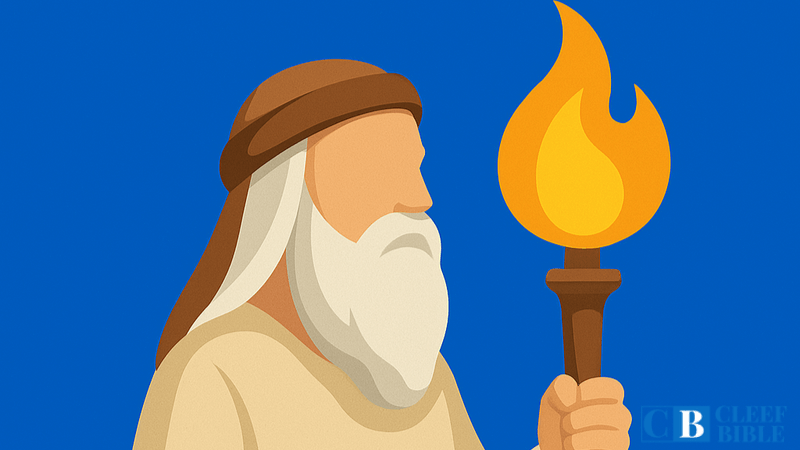
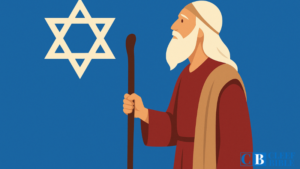
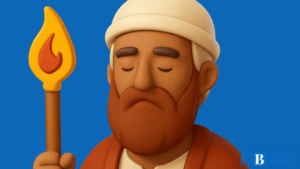
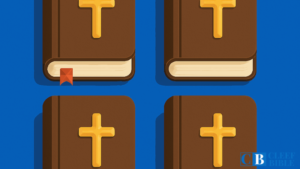




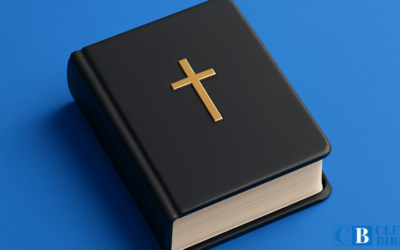




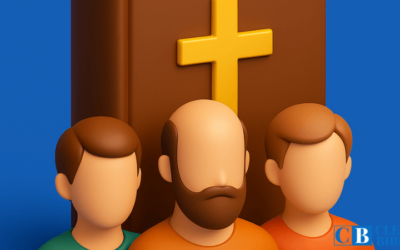
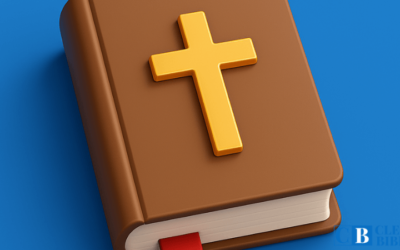
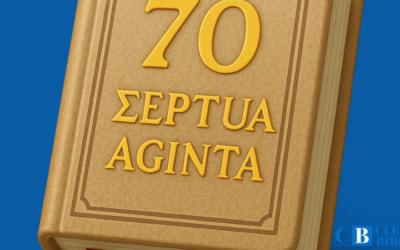

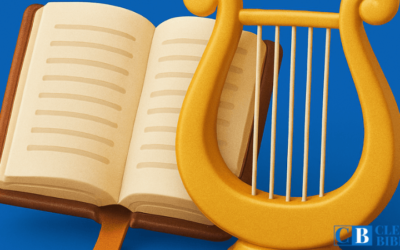

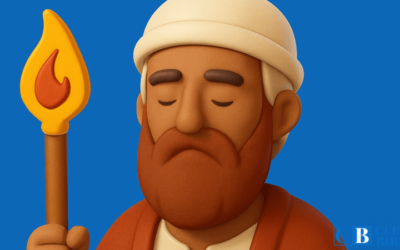



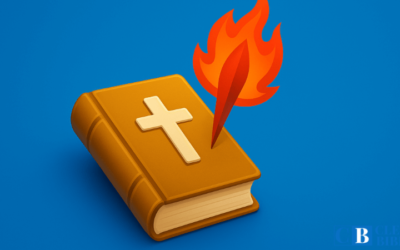
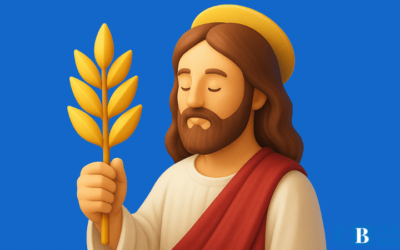
0 Comments